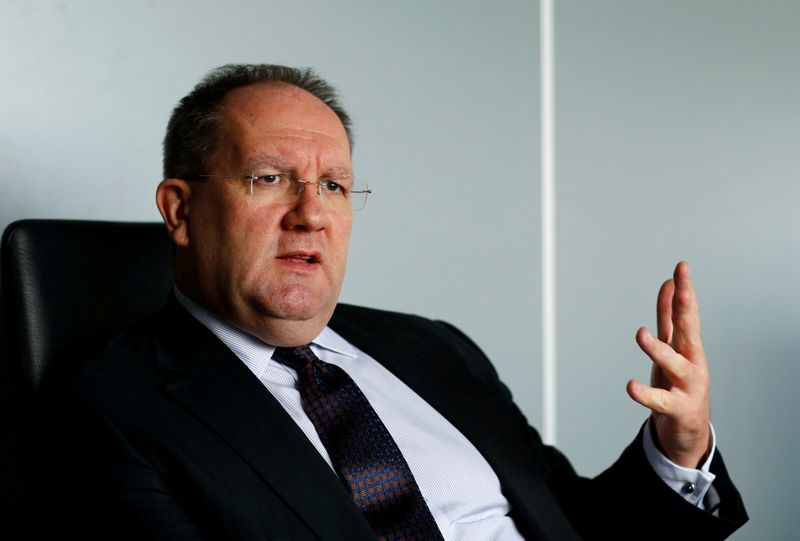FRANKFURT (Reuters) – Felix Hufeld will leave the helm of Germany’s financial watchdog BaFin after coming under pressure for failing to spot wrongdoing ahead of the collapse of the payments company Wirecard.
“The Wirecard scandal has revealed that Germany’s financial supervision needs a reorganization,” the finance ministry said in a statement.
The acknowledgement of problems was a fresh indictment of Germany’s supervision of a company that began by processing payments for gambling and pornography before becoming a star of “fintech” – financial technology – and finally Germany’s biggest fraud case.
The finance ministry said the decision to replace Hufeld was mutual and came ahead of the results of a ministry examination of a restructuring of the agency to be presented next week.
Calls for Hufeld’s resignation came to a head on Thursday after BaFin reported one of its employees to state prosecutors on suspicion of insider trading linked to Wirecard, shortly before the firm folded.
Hufeld said in the ministry statement that BaFin had grown in significance and relevance during his six years as president. “Now there are other tasks to tackle,” he said, wishing his successor the best.
In a separate statement, Bafin said the executive director of its securities supervision, Elisabeth Roegele, would also step down by mutual agreement to make way for a new leadership.
BaFin declined to comment further.
Olaf Scholz, Germany’s finance minister, has also been criticised because he is responsible for BaFin.
Fabio de Masi, a German lawmaker who is participating in a parlimentary inquiry into Wirecard, said Hufeld’s departure was “long overdue”.
“It can’t be explained why Mr. Scholz waited weeks and months to make this decision,” de Masi said.
Hufeld is expected to stay at the helm until March 31 to ensure an orderly handover to new leadership, two people with knowledge of the matter said.
Allegations of fraud at Wirecard had swirled for years, though BaFin and German prosecutors long focused their investigations on the investors and journalists who had highlighted irregularities.
As the company edged towards collapse, BaFin staff bought and sold its shares in ever higher volumes.
(Reporting by Tom Sims and Patricia Uhlig; Additional reporting by Ludwig Burger; Editing by Kirsti Knolle, Frances Kerry and Alison Williams)























